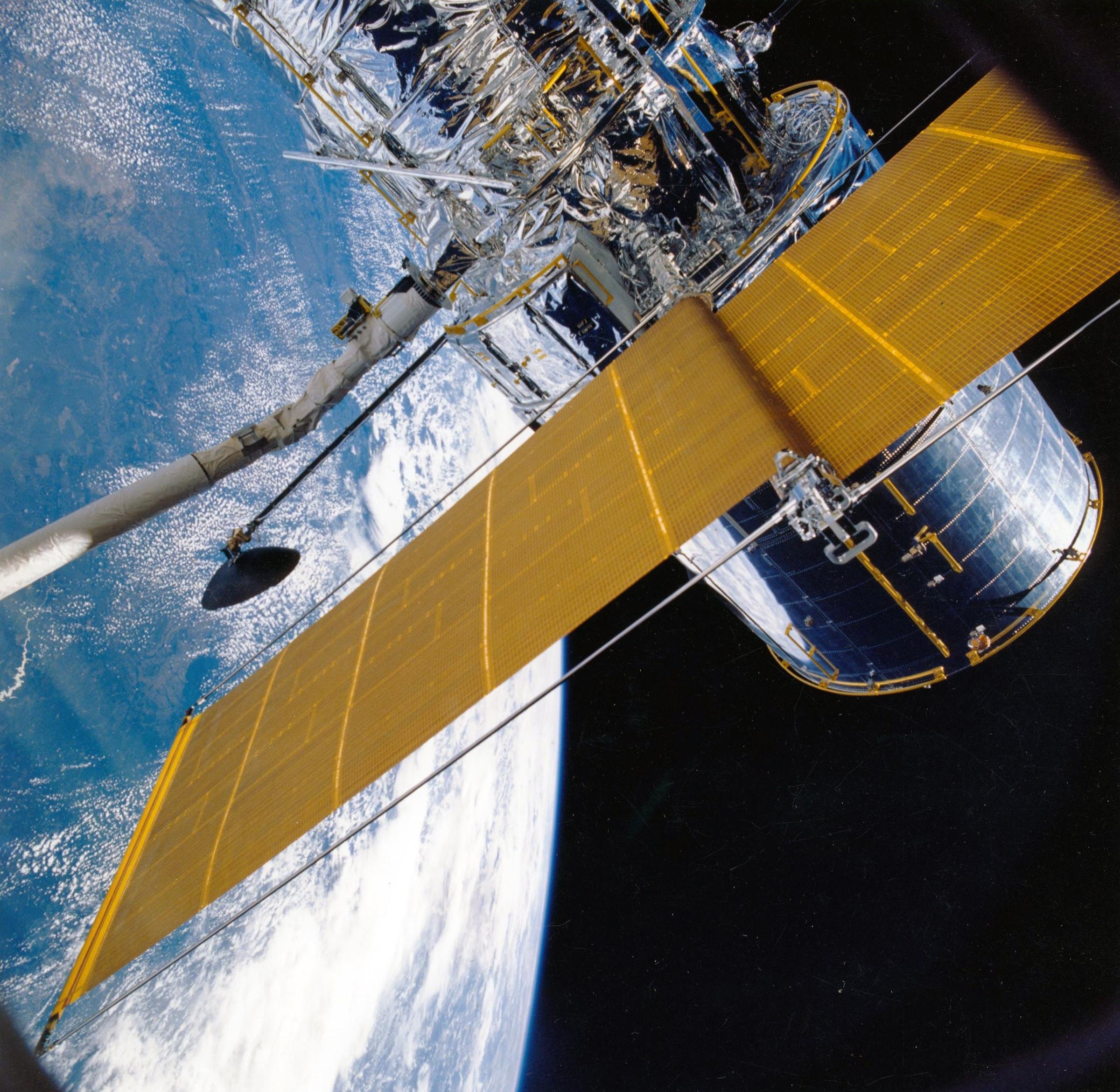Imagine a world where you can design the spacecraft that ventures into the depths of space or the cutting-edge aircraft that revolutionizes air travel. Aerospace engineering is at the core of these innovations, making it an exhilarating career choice for those passionate about aviation and technology. Whether you're an engineering student, a seasoned engineer contemplating a transition, or someone seeking a promising career path, aerospace engineering offers exciting opportunities.
In this blog post, we'll explore the multifaceted world of aerospace engineering, tracing the path from education to employment. We'll guide you through the essential steps, unveil the skills you'll need, and provide insights into the aerospace engineering salary landscape. Ready to discover whether this dynamic field is your calling? Let's get started!
The Expansive World of Aerospace
Aerospace is a massive industry today, driven by the global demand for aviation and space exploration. From commercial air travel and freight transportation to national defense systems, aerospace engineers play a vital role in shaping the future of flight and space travel. The industry encompasses various sectors, each with its challenges and opportunities.

Aerospace engineering is not just about building planes and rockets. It's about innovation, problem-solving, and improving the technologies that make modern life possible. The industry's vast scope means that engineers can specialize in aerodynamics, propulsion systems, avionics, materials science, and more.
The aerospace industry's growth is poised to continue as global travel increases and technology advances. By becoming an aerospace engineer, you can contribute to an industry that connects people, facilitates trade, and protects nations. It's a career that blends technical expertise with creative thinking, offering a unique blend of challenges and rewards.
What Does an Aerospace Engineer Do?
Aerospace engineers are responsible for designing, testing, and overseeing the manufacturing of aircraft and spacecraft. They work on everything from small drones to massive passenger jets and spacecraft designed for interplanetary travel. Their work involves a deep understanding of physics, mathematics, and engineering principles.
One of the most exciting aspects of being an aerospace engineer is the variety of projects you can work on. You might specialize in designing lightweight materials to improve fuel efficiency, developing cutting-edge navigation systems, or testing the latest propulsion technologies. Each project presents its own set of challenges and opportunities for innovation.
In addition to technical skills, aerospace engineers need strong problem-solving abilities and attention to detail. They must also be able to work collaboratively, as projects often involve multidisciplinary teams. Communication skills are essential, as engineers must convey complex technical information to non-experts.
Educational Pathways to Aerospace Engineering
To pursue a career in aerospace engineering, a solid educational foundation in science and mathematics is crucial. Most employers require a bachelor's degree in aerospace engineering or a related field. This degree provides the essential knowledge and skills needed to excel in the industry.
During your undergraduate studies, you'll take courses in aerodynamics, propulsion systems, structural analysis, and control systems. These courses will equip you with the technical knowledge needed to tackle the challenges of aerospace engineering. Internships and cooperative education programs offer valuable hands-on experience and networking opportunities.
For those who wish to advance their careers, a master's degree or even a Ph.D. can open doors to leadership roles or specialized research positions. Graduate studies allow you to focus on specific areas of interest and conduct cutting-edge research that can drive innovation in the industry.

Skills Every Aerospace Engineer Needs
Aerospace engineering is a highly technical field that demands a diverse skill set. In addition to a strong foundation in physics and mathematics, engineers need proficiency in computer-aided design (CAD) software and programming languages like MATLAB or Python.
Problem-solving skills are paramount, as engineers must devise innovative solutions to complex challenges. Analytical skills are also critical, enabling engineers to evaluate data and make informed decisions. Attention to detail ensures that designs are precise and meet safety standards.
Communication skills are essential for collaborating with colleagues and presenting ideas to stakeholders. Engineers often work in teams, so the ability to convey technical information clearly and concisely is crucial. Finally, a passion for innovation and a willingness to stay updated on industry trends will keep you at the forefront of aerospace engineering.
The Aerospace Engineer Salary Landscape
Aerospace engineering is not only intellectually rewarding but also financially lucrative. The aerospace engineer salary is among the highest in the engineering field, reflecting the specialized skills and knowledge required. Salaries can vary based on factors such as experience, education, and location.
According to the Bureau of Labor Statistics, the median annual salary for aerospace engineers in the United States is over $116,000. Entry-level positions typically offer competitive starting salaries, and opportunities for advancement abound as engineers gain experience and expertise.
In addition to salary, aerospace engineers often enjoy benefits such as job stability, opportunities for career growth, and the satisfaction of working on groundbreaking projects. The demand for skilled aerospace engineers remains strong, making it a promising career choice for the future.
Transitioning to Aerospace Engineering
For engineers in other fields considering a transition to aerospace engineering, the prospect can be both exciting and daunting. The good news is that many skills are transferable, and with the right preparation, you can successfully make the switch.

Start by assessing your current skills and identifying areas where you need additional training. Consider enrolling in courses or workshops that focus on aerospace engineering topics. Networking with professionals in the industry can also provide valuable insights and opportunities.
Gaining practical experience through internships or part-time positions can enhance your resume and build your confidence in the field. With determination and a commitment to learning, transitioning to aerospace engineering can open new doors and expand your career possibilities.
The Future of Aerospace Engineering
The future of aerospace engineering is bright, driven by advancements in technology and a growing demand for innovative solutions. Emerging trends such as electric aircraft, autonomous drones, and space tourism present exciting opportunities for engineers to make a significant impact.
Aerospace engineers will play a pivotal role in addressing environmental concerns by developing sustainable aviation technologies. The industry's focus on reducing carbon emissions and improving fuel efficiency aligns with global efforts to combat climate change.
Furthermore, the exploration of space offers endless possibilities for discovery and innovation. Engineers will contribute to missions that expand our understanding of the universe and pave the way for human settlement beyond Earth.
Exploring Career Opportunities
Aerospace engineering offers diverse career opportunities across various sectors. You could work for commercial airlines, defense contractors, space agencies, or research institutions. Each sector offers unique challenges and rewards, allowing you to tailor your career to your interests.
In the commercial sector, engineers design and improve passenger aircraft, enhance safety features, and optimize fuel efficiency. Defense contractors focus on developing advanced military aircraft and missile systems, contributing to national security.
Space agencies and research institutions provide opportunities to work on groundbreaking projects, such as designing spacecraft for interplanetary exploration or developing technologies for satellite communication. The possibilities are vast, and the choice is yours.
Building a Network in the Aerospace Industry
Networking is a crucial component of building a successful career in aerospace engineering. Connecting with professionals in the industry can provide valuable insights, mentorship, and job opportunities. Attend conferences, join professional organizations, and engage with online communities to expand your network.
Participating in industry events allows you to learn about the latest advancements and trends, as well as meet potential employers and collaborators. Building relationships with experienced engineers can provide guidance and support as you advance in your career.
Consider joining organizations such as the American Institute of Aeronautics and Astronautics (AIAA) or the International Council of the Aeronautical Sciences (ICAS) to access resources and connect with peers. A strong network can be a powerful asset in achieving your career goals.
In Conclusion
Aerospace engineering offers a dynamic and fulfilling career path for those passionate about aviation and innovation. Whether you're an aspiring engineer or considering a transition, the industry provides opportunities to work on cutting-edge projects that shape the future of flight and space exploration.
With a strong educational foundation, the right skills, and a commitment to continuous learning, you can thrive in this exciting field. The aerospace engineer salary and career potential make it an attractive choice for those seeking both intellectual and financial rewards.
Ready to take the next step? Explore educational programs and connect with professionals to begin your journey into the world of aerospace engineering. The sky is not the limit—it's just the beginning!

A Pink Halloween: Supporting Breast Cancer Awareness Month
Each year, SkillsetGroup likes to get in the holiday spirit in different ways. In the past we have done our decoration contests for Halloween with each office vying to take the lead. This year, we…
Read More

Human Resources: Becoming a Vital Resource for Your Company
The field of Human Resources (HR) is more than just a department that handles hiring and firing. For many, it’s a gateway to a fulfilling career path. But how do you penetrate this indispensable sector?…
Read More

Celebrating Our Team: Interviews with Staffing Professionals
We appreciate and value each and every one of our employees here at SkillsetGroup, and so we want to hear from them. What they think about their time at the company, what they have learned…
Read More

SkillsetGroup La Puente Branch Now Open!
This past week SkillsetGroup had the honor of opening our latest office! Relocated from our Santa Fe Springs location, our La Puente office is now open and serving clients and candidates in the San Gabriel…
Read More

